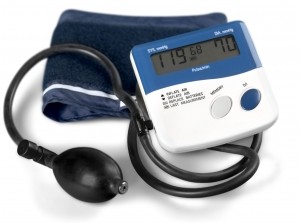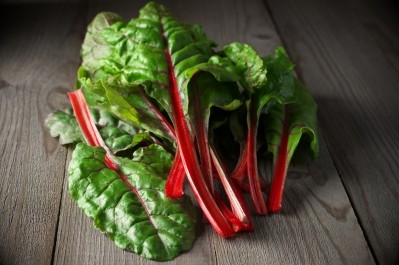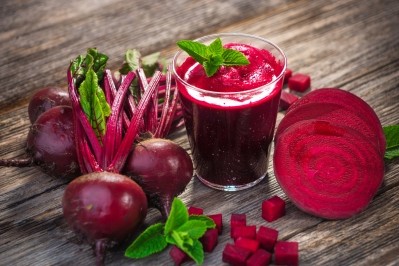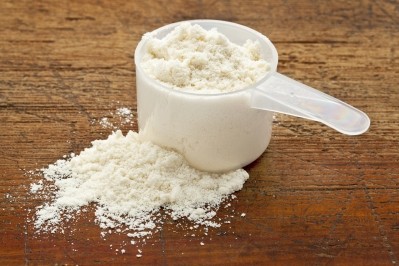New study supports nitrate-rich beetroot juice’s heart health benefits
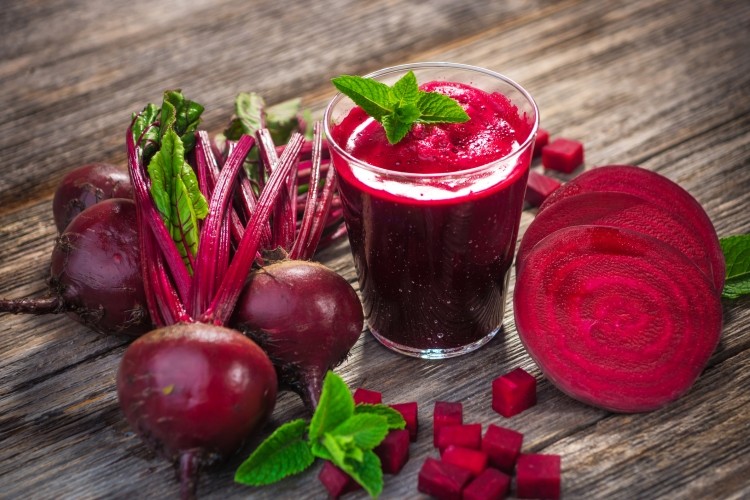
Scientists affiliated with Bangor University in Wales and the University of Queensland in Australia report that two weeks of beetroot juice consumption led to reductions in systolic and diastolic blood pressure of 6 mmHg and 4 mmHg, respectively.
However, while these decreases in blood pressure were greater than the decreases observed in the placebo group, the differences between the groups did not reach statistical significance.
Data published in Nutrients also indicated that while no changes were observed for microvascular responses, beetroot juice consumption was associated with an improvement in flow-mediated dilation (FMD), a measure of a blood vessel's healthy ability to relax.
“Despite our pilot data not showing a significant effect between the groups, collectively, these positive findings imply that medium-term use of NO3− [nitrate] supplements can reduce BP [blood pressure] and improve EF [endothelial function] of the large blood vessels,” wrote the scientists.
Beetroot
The study adds to a growing body of science supporting the potential cardiovascular benefits of beetroot juice, linked to the nitrate content.
Until relatively recently nitrate – which is abundant in green leafy vegetables – had been considered merely as an inert end product of nitric oxide (NO) metabolism or as a potentially toxic constituent in our diet.
However, the last decade has brought understanding of its importance in biological processes, including regulation of blood flow, blood pressure, cellular signaling, glucose homeostasis, and tissue responses to low oxygen levels (hypoxia). In addition, epidemiological studies have linked the intake of green leafy vegetables to a reduction in the risk of cardiovascular disease.
Study details
For the new study, the researchers recruited 20 healthy older subjects (average age of 63) to receive either placebo or beetroot juice for four weeks. Blood pressure and other cardiovascular measures were taken at the start of the study, and again after two and four weeks.
The results showed that, after two weeks of beetroot juice supplementation, plasma nitrates increased, and this was accompanied by statistically significant decreases in systolic and diastolic blood pressure, compared to baseline. At two weeks, diastolic and systolic blood pressure was reduced by 6 mmHg and 4 mmHg, respectively. The improvements were less at four weeks, with reductions of 4 mmHg and 2 mmHg, respectively, compared to baseline.
Despite there being no change in blood pressure in the placebo group, the size and power of the trial meant that there were no statistically significant differences between the groups.
The researchers also noted that beetroot juice consumption led to a 1.5% increase in FMD after two weeks, but only a minimal (0.1%) change in the placebo group.
On the other hand, there were no significant differences between the groups for endothelium-dependent or endothelium-independent microvascular responses.
“[T]his pilot study demonstrated that medium-term BRJ ingestion potentially improves SBP, DBP and large-vessel EF in healthy older adults. These changes corresponded to the changes in plasma NO3− levels.
“Although no changes in microvascular function were observed, further prospective studies examining the long-term impact of NO3− supplementation on this vascular bed in patient populations at risk of CVD are warranted,” they concluded.
Source: Nutrients
2019, 11(8), 1792; doi: 10.3390/nu11081792
“The Effects of Beetroot Juice on Blood Pressure, Microvascular Function and Large-Vessel Endothelial Function: A Randomized, Double-Blind, Placebo-Controlled Pilot Study in Healthy Older Adults”
Authors: T. Jones et al.
